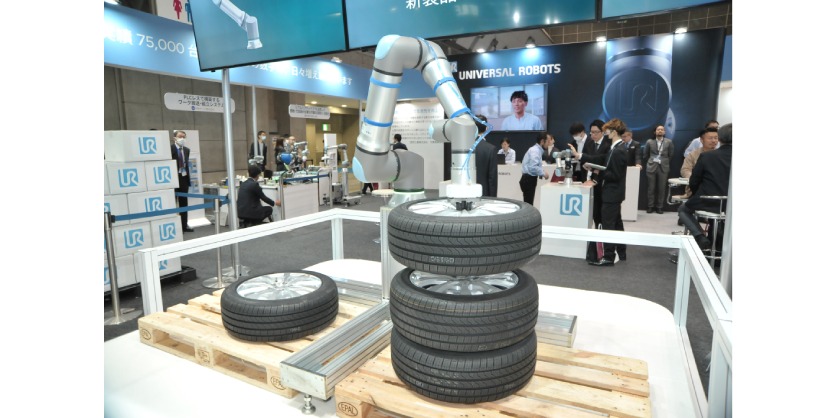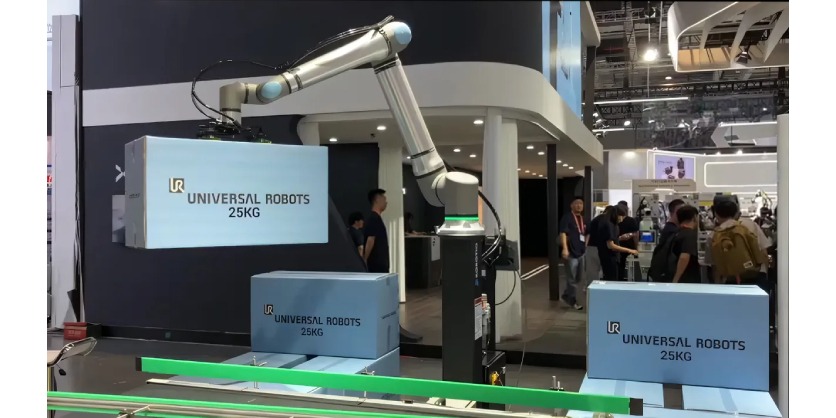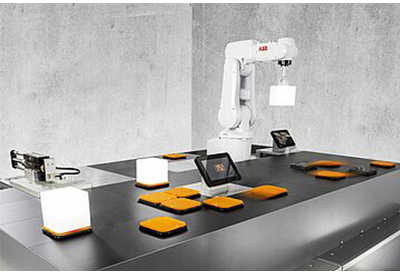Universal Robots Updates Payload Capacity for UR20 and UR30
September 26, 2024

Enhancing the strength of high-payload cobots will boost throughput and productivity for customers.
Universal Robots, the Danish collaborative robot (cobot) company, is now increasing the payload capacity on its new-generation, high-payload cobots UR20 and UR30, enabling customers to lift more at no additional cost.
The updates raise the total payload, including end-effector, to 25 and 35 kgs respectively when utilizing the cobot in top lift position. This is especially useful for palletizing applications and solutions.
“At Universal Robots, we continuously test and develop our products, and when we unlock new features, we want to give partners and customers immediate access,” says Tero Tolonen, Chief Product Officer. “This update enables customers to increase productivity without increasing costs, and it’s just one example of how our passion for innovation drives benefit to our customers’ bottom line.”
The additional strength doesn’t require any new purchases and production updates can happen in just minutes. The increased payload can be unlocked by simply updating UR’s PolyScope software to version 5.19 or later. Within 2024, UR20s and UR30s shipped will automatically include the software needed to support the use of higher payloads.
Read more about the increased payload for UR20 and UR30 here.

A UR20 palletizing application with increased payload was showcased for the first time at the China International Industry Fair in Shanghai.
Related Story
Universal Robots Shows Deep Learning-Based Part Detection for Machine Tending Cobots at IMTS
The pioneer of collaborative robotics is set to unveil a new AI-powered machine tending solution at IMTS, enabling faster batch changeovers by eliminating the need for fixtures. Additionally, the company will showcase advanced cobot applications for welding, finishing, part feeding, and laser marking.
When Universal Robots (UR) recently surveyed 1,200 manufacturers across North America and Europe about their use of technology and future investment plans, over 50% of the respondents indicated they are now using AI and machine learning in their production processes.


